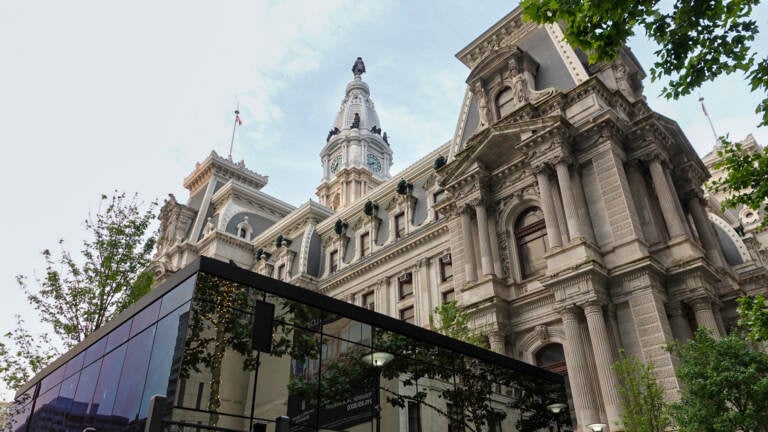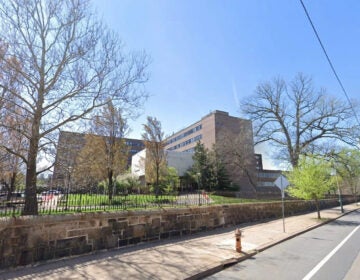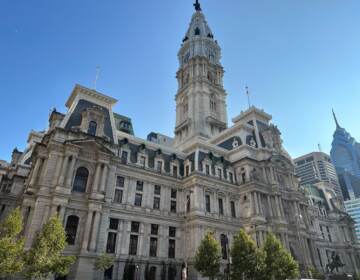Philly’s eviction diversion program poised for 18-month extension
The acclaimed program was slated to expire at the end of the year. It is now poised to operate through the first half of 2024.

Philadelphia City Hall. (Mark Henninger/Imagic Digital)
City Council has extended the life of Philadelphia’s Eviction Diversion Program, a pandemic-inspired alternative to landlord-tenant court that’s been credited with keeping thousands of residents in their homes over the last two years.
Under legislation passed Thursday, the free program will remain in place through June 2024. It was slated to expire at the end of the year after essentially operating as a pilot since January.
“This program was born out of crisis, but out of it we came up with something that will stabilize and indeed, we hope, lead to a more prosperous and stable and healthy safe city for everyone,” said Councilmember Helen Gym, who introduced the bill.
Held up by the federal government as a model for other cities, the acclaimed program requires most landlords to sit down with their tenants and a trained mediator before filing for an eviction. Under the new measure, landlords have to wait at least 30 days before taking legal action, down from 45.
The goal is to resolve disputes without a court case, which can negatively impact a tenant for years even if a judge rules in their favor. Simply having an eviction filing on your record can make it harder to secure safe and affordable housing in the future.
Since September 2020, more than 3,000 landlord-tenant pairs have participated in mediation, according to the city. Nearly 80% of those disputes were resolved with an agreement outside of court.
“This program, because it allows things to be resolved outside of court, it actually saves court for the things that need to be in court. For the complex things that require a judge, that require the judicial system,” said Vikram Patel, a housing attorney with Community Legal Services, one of the program’s partners.
In some cases, disputes have been resolved after a landlord has agreed to extend a deadline or be paid in a series of installments. Other solutions have seen tenants agree to move out.
A number of cases involving back rent have utilized emergency rental assistance dollars from the state and federal government. Since launching in May 2020, the city’s Emergency Rental Assistance Program has distributed nearly $300 million to more than 46,000 households, according to the city.
Council and Mayor Jim Kenney’s administration has allocated a total of $45 million for the continuation of the diversion program, including $30 million for direct assistance this fiscal year. The process for how those funds will be administered to landlords and benefit tenants is still being worked out, said Jamila Davis, a spokesperson for the Philadelphia Housing and Development Corporation.
Andre Del Valle, vice president for government affairs at the Pennsylvania Apartment Association, said Thursday that his group supports the continuation of the program, though it would like to see the timeline for meditation reduced in the future.
“We’re committing to work with the city, the courts, and other stakeholders…on what the future of this diversion program looks like for both tenants and landlords across the city of Philadelphia,” said Del Valle.
The bill now heads to Mayor Kenney’s desk for his signature.
 WHYY is one of over 20 news organizations producing Broke in Philly, a collaborative reporting project on solutions to poverty and the city’s push towards economic justice. Follow us at @BrokeInPhilly.
WHYY is one of over 20 news organizations producing Broke in Philly, a collaborative reporting project on solutions to poverty and the city’s push towards economic justice. Follow us at @BrokeInPhilly.

Saturdays just got more interesting.
WHYY is your source for fact-based, in-depth journalism and information. As a nonprofit organization, we rely on financial support from readers like you. Please give today.








